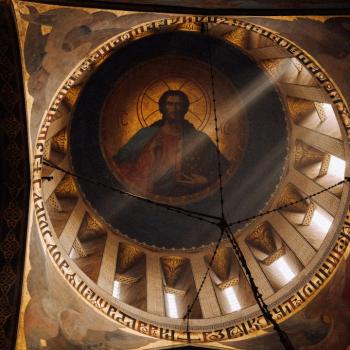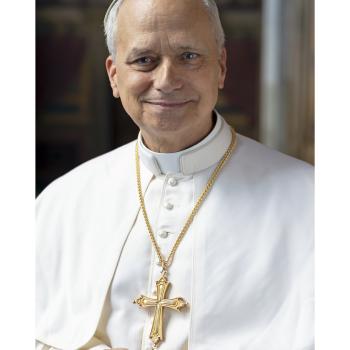Galileo’s fascination with the stars prompted his interest in mathematics and Scripture. Beyond the science of astronomy; astrology, engineering, and mathematics also piqued his interest. Although he lived a life that did not follow Church doctrine at every moment, he was proud of the fact that he was Catholic.
Astrology caught his fancy as a young man. As the Church condemned it and he discovered its weak points, he distanced himself from astrology. His investigations into the scientific method set him up to be one of the fathers of modern science. He showed dedication to experience over theory, even though he sometimes still stayed at the level of thought experiments.
Clashes with Aristotelian schools caused much uproar for him. He considered his own theories more in line with Aristotle, who would have agreed that the heavens changed if he had indeed observed this. Thus, as an Aristotelian he had to battle with Aristotelians. One of the curious aspects of Galileo’s astronomy is that he linked his findings to Scripture.
Much of what Galileo asserted about Scripture fits in with what the Catechism of the Catholic Church teaches about the four senses of Scripture. He helped the Church move away from a literalistic interpretation, while maintaining the importance of a literal understanding of the Bible. All of Scripture is to be understood both literally and figuratively.

Four Senses of Scripture
The first meaning is always the literal meaning.
The literal sense is the meaning conveyed by the words of Scripture and discovered by exegesis [the process scholars use to determine the meaning of the text], following the rules of sound interpretation: “All other senses of Sacred Scripture are based on the literal” (Catechism of the Catholic Church, 116, citing St. Thomas Aquinas, Summa Theologiae I, 1, 10).
Beyond the literal sense of scripture, we have the figurative senses. The first figurative sense is the allegorical sense, which helps us find metaphorical or symbolic meanings of scripture. In the Old Testament, we see many images that pre-figure the New Testament. For example, the manna that comes down from Heaven to feed the Israelites (cf. Ex. 16) prefigures the Eucharist (cf. Jn. 6:51).
The moral sense applies the words of Scripture to our own lives. When we read the Ten Commandments, we have to find a way to apply them to our own lives, ridding our hearts of adultery and our minds of murder. The Sermon on the Mount challenges us to live a life of beatitude, going further in our imitation of Christ.
The anagogical sense explores the text’s spiritual and heavenly significance. This reminds us that we are heading to Heaven. Throughout our reading of Scripture, we are invited to contemplate future things. The anagogical sense helps us have an eschatological interpretation of Scripture.
Heaven is breaking in all around us, both in the Incarnation of Jesus, and in the gift of the Holy Spirit, who is most especially at work through the sacraments and, above all, in the Eucharist. That is why the book of Revelation speaks of the Marriage Supper of the Lamb (Mark Shea, The Four Senses of Scripture).
We can refuse Heaven by our own free choice. This is part of why Scripture reminds us of its existence and reality. John Lennon’s song “Imagine” invites us to forget Heaven, assuming an atheistic or Communist worldview. We are called to do the opposite, holding on to the truth revealed through Sacred Scripture.
Getting to the Heart of Scripture
Galileo overstepped some bounds by looking to deny the miracle of the sun in Joshua 10:12-13. Instead of accepting this as an anomalous manifestation of nature, he took it as setting in stone an astronomy that assumed the motion of the sun around the earth. If we go back to the four senses of Scripture, we are able to interpret this passage differently.
First, we have to deal with the literal meaning of the passage. It is clear that the people present experienced the movement of the sun opposite of their common, everyday observations. Does this mean that the sun moved the other direction, or that they perceived a change in its natural motion? A literalistic interpretation has more difficulties with the passage, but it is not so hard to take it literally and reconcile it as a miracle, an anomaly. “Literalism” can be seen as a fundamentalist approach to Scripture. (c.f. Pope Benedict XVI, Verbum Domini, 44)
Allegory in Scripture?
Is there an allegory in this passage? If there is, it does not seem to be so clearly present. The event seems to be presented as a literal event, showing the power of God. Through this miraculous event, God showed his support of Joshua in the face of the Amorites.
What is the moral sense of the passage? We are called to obey God and trust him with our lives. We do not live absolutely. To be “absolute” is to be dissolved of every connection. We could not escape our connection to God, even if we wanted to do so. God is the Creator of the Universe and rules over all of creation. This will have an influence on our own lives.
How does this passage show that we are headed for Heaven? We are always in God’s hands and can trust him. God steps in and performs a miracle to show his love for Israel. This shows the anagogical sense of this Scripture passage.
Splendor of Truth
One way that Galileo’s case helps us to reconcile faith and science is that it shows us that science and faith do not contradict one another. Through our theology and faith, we are called to find our way to heaven. Through the natural sciences, we are called to participate in getting to know our created world better. The error would be to think that our advances in the natural sciences justify moving away from the truth that comes to us through Christ.
But no darkness of error or of sin can totally take away from man the light of God the Creator. In the depths of his heart there always remains a yearning for absolute truth and a thirst to attain full knowledge of it. This is eloquently proved by man’s tireless search for knowledge in all fields. It is proved even more by his search for the meaning of life. The development of science and technology, this splendid testimony of the human capacity for understanding and for perseverance, does not free humanity from the obligation to ask the ultimate religious questions. Rather, it spurs us on to face the most painful and decisive of struggles, those of the heart and of the moral conscience. (Pope John Paul II, Veritatis Splendor, 1).
Growing scientific knowledge cannot replace our need to seek the meaning of life. Galileo knew that just as we should flee scientific ignorance, we should flee moral ignorance. We want to know God’s mind, both in the universe and along the lines of salvation.
Subscribe to the newsletter to never miss an article.













